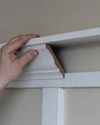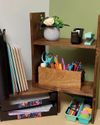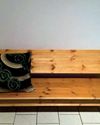
If you are frequently in a workshop, you're likely exposed to many risks. Workshops are hazardous environments both by nature and the activities people carry out in them. Therefore, it's essential that you're aware of these hazards and how to protect your health and safety. This article outlines common workshop hazards and control measures that you can take to reduce them.
What are the most common workshop hazards?
There are many jobs associated with workshops, such as carpentry, welding, and paint spraying. Each role comes with different hazards and can make workshops dangerous places to occupy.
The top 15 workshop hazards are:
• Lack of guards or screens on equipment or around dangerous areas.
• Damaged or misused guards.
• Lack of adequate ventilation and temperature.
• No safety signs, outdated safety signs, and broken safety signs.
• Machinery left unattended while in use.
• Obstructions - of fire exits, cut-out switches, etc.
• Cluttered workstations.
• Trailing wires and cables.
• Chemical substances in unmarked containers.
• Chemical splashes.
• Incorrect tools used for tasks.
• Confined spaces.
• Electric shocks, burns, or fires.
• Lone working.
• Sharp items.
How to reduce hazards in your workshop
Workshops are clearly dangerous environments and so you should do all you can to reduce the level of risk. Often, you can easily reduce risks through a few small steps, some of which we've outlined below.
Bu hikaye The Home Handyman dergisinin January/February 2023 sayısından alınmıştır.
Start your 7-day Magzter GOLD free trial to access thousands of curated premium stories, and 9,000+ magazines and newspapers.
Already a subscriber ? Giriş Yap
Bu hikaye The Home Handyman dergisinin January/February 2023 sayısından alınmıştır.
Start your 7-day Magzter GOLD free trial to access thousands of curated premium stories, and 9,000+ magazines and newspapers.
Already a subscriber? Giriş Yap

UPGRADING home security
When it comes to home security, doors, locks, and handles are your first line of defence.

CEILING ELEGANCE
All you need to know about cornices and crown moulding.

8 DIY MYTHS YOU SHOULD STOP BELIEVING
DIY can seem intimidating, especially if you’re new to it or have heard some of the common myths that discourage people from trying their hand at it. But don’t let these misconceptions hold you back! Here are 8 DIY myths you should stop believing and the truth behind them.

WINDOW WONDERLAND
Windows are more than just functional parts of a home they're key design elements that influence your comfort, security, and energy efficiency.

CONCRETE CREATIONS: A guide to working with cement
With the right tools, techniques, and a little know-how, working with cement can be straightforward and incredibly rewarding.

HOW TO CARVE A WOODEN BIRD
Do you love nature and its beautiful creatures? Are you passionate about wood carving and want to combine the two? If so, you're in the right place! In this article, we'll show you how to carve a wooden bird that captures the beauty of nature and provides a satisfying creative outlet.

SHELF-INDULGENCE
Free-standing shelves are a versatile solution for tidying up almost any space. Whether it's your desk, kitchen, workshop, craft room, children's room, or even a spot for plants, these shelves can help you organise and declutter.

RACK IT UP
If you've ever wanted to create a custom shelf that combines industrial style with functionality, this project is for you! Using metal tubing and wood, you'll build a robust shelving unit perfect for organising your space.

BUILDING A SIMPLE KITCHEN BENCH
I needed a kitchen bench, so I built one... When you're in need of furniture but don't want to spend a fortune, building it yourself can be both a cost-effective and satisfying solution.

SIT HAPPENS
An ergonomic kneeling chair is a practical and stylish solution for anyone who spends long hours working at a desk.